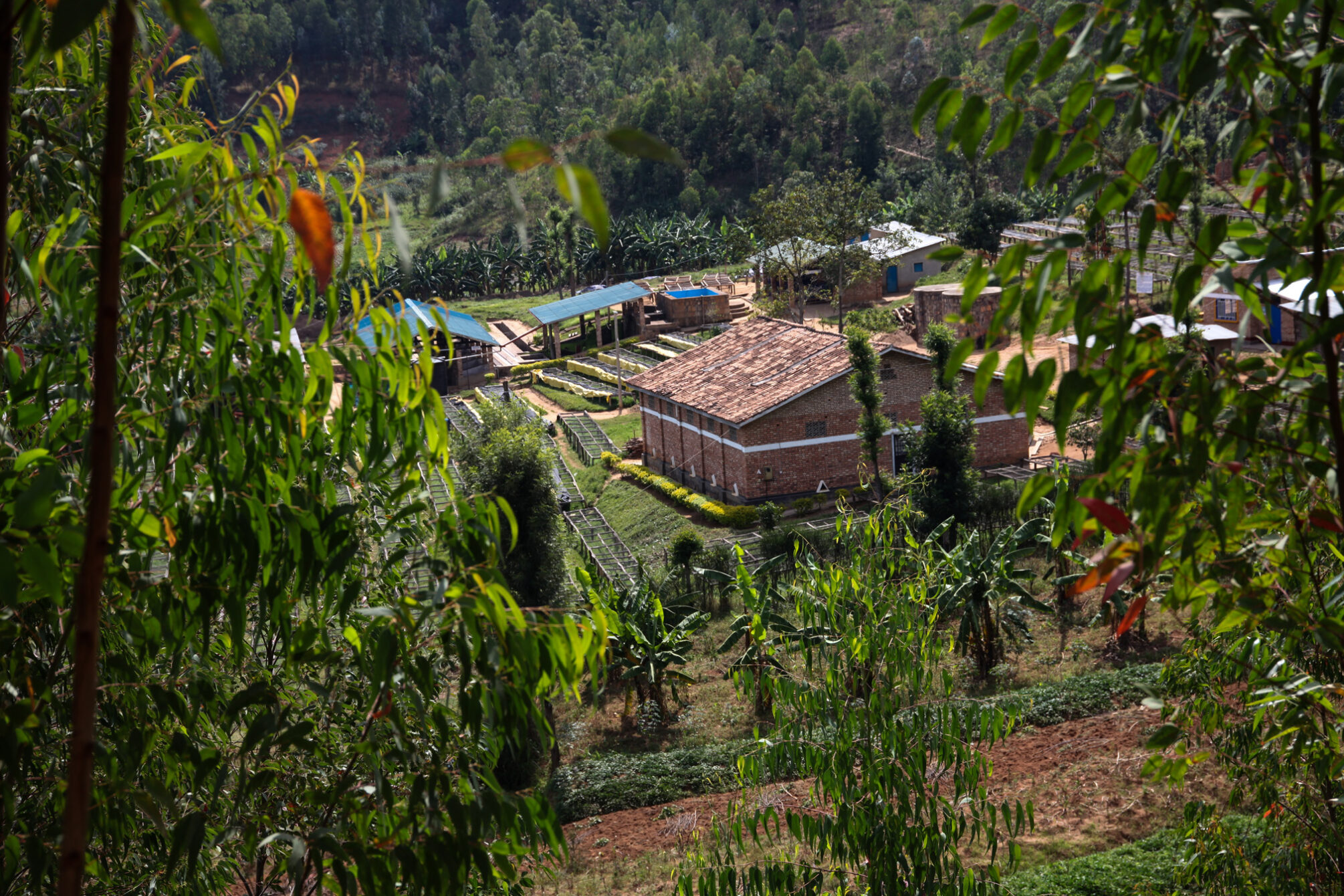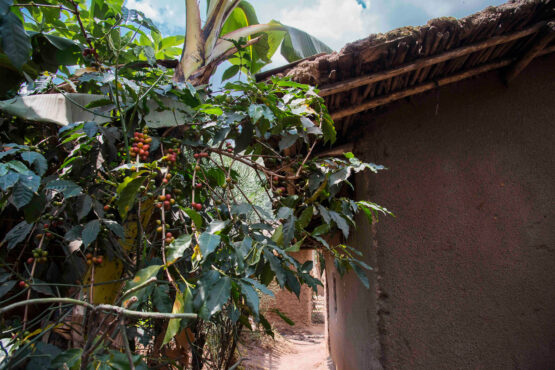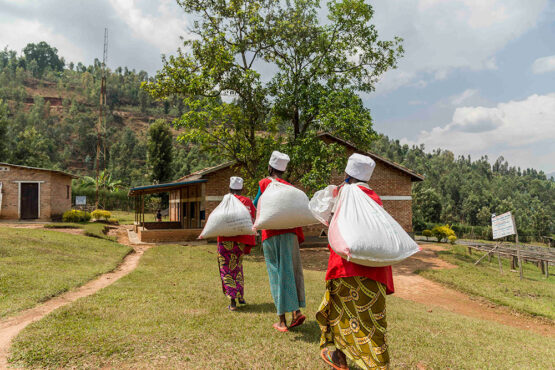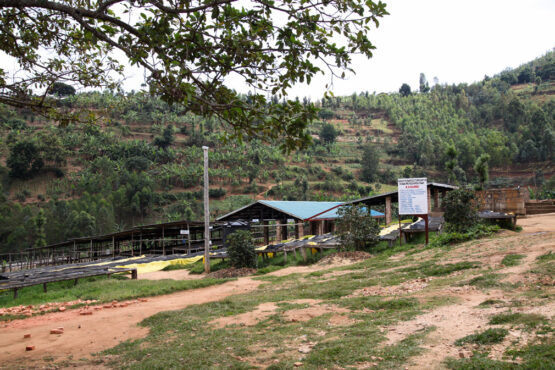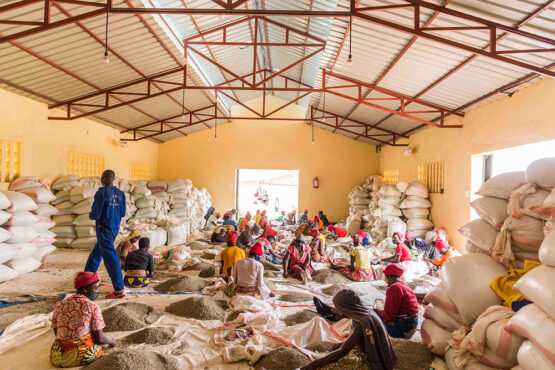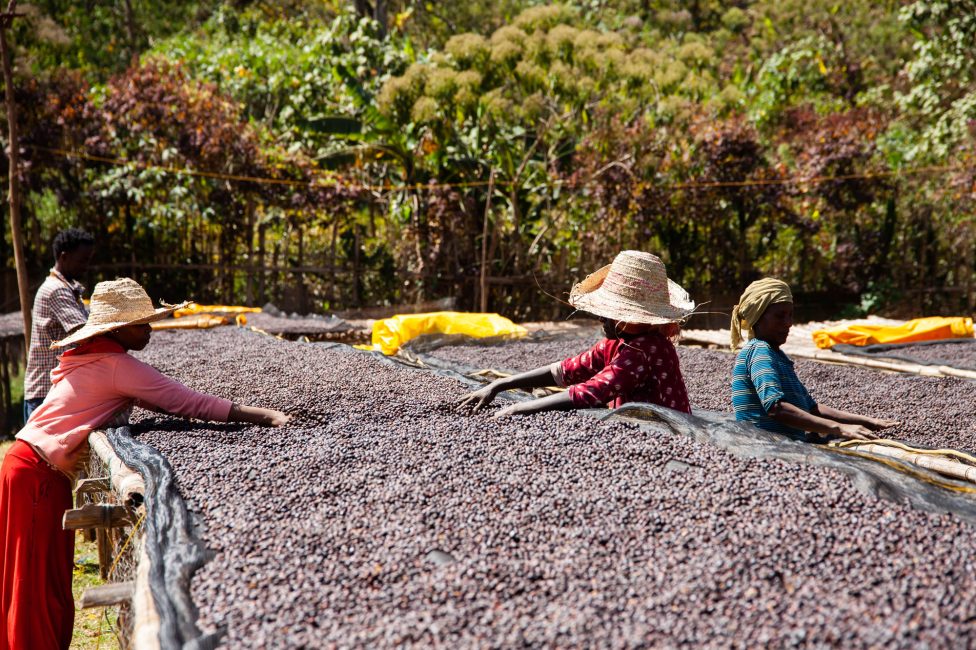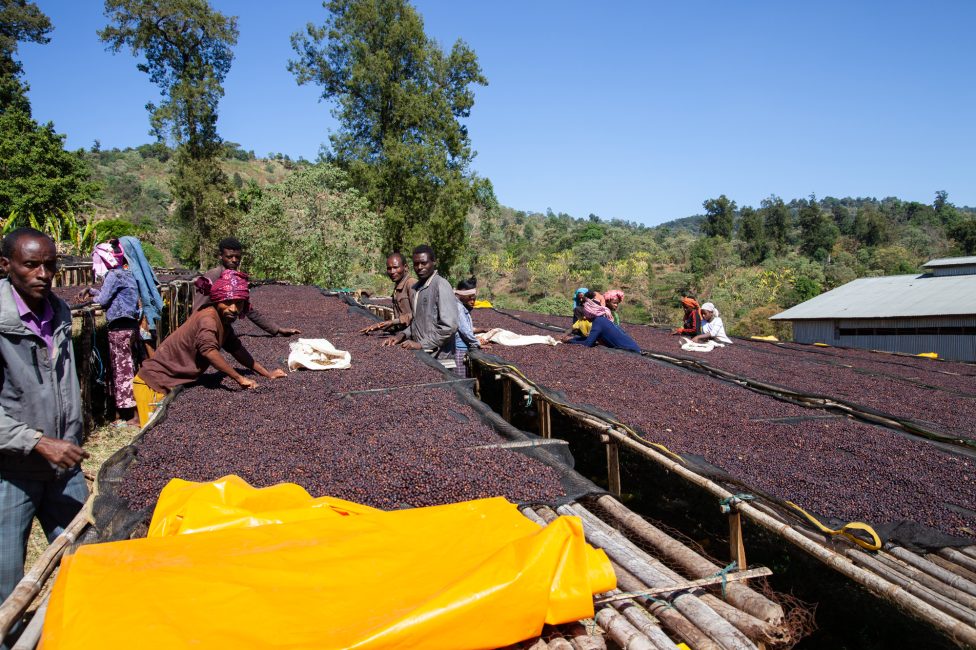Koakaka Rwamweru Women’s Coffee
Bright and floral, with rose hip and vanilla fragrance. Cherry, lemon and milk chocolate in the cup.
This special micro-lot was produced by 107 female farmers who grow coffee on small farms in the hills surrounding Karambi washing station, located in the Kigoma Sector of Huye District, in Rwanda’s Southern Province. The women are members of the Koakaka Cooperative, who own and manage Karambi along with two other nearby washing stations.
Most washing stations in Rwanda receive cherry from hundreds (and sometimes thousands) of farmers who own very small plots of land. Separation of such tiny lots is expensive and impractical, so the large majority of coffees are processed as a mixed lot from multiple producers. Typically, lots are separated as day lots (ie. cherries that were all picked on the same day) rather than by a single farm or producer group.
A few years ago, the women of Kigarama Village (a small farming community that delivers fresh cherry to Karambi) banded together and made the decision to process and market their coffee as their own. They named their association Rwamweru, which is one of the six zones that Koakaka operates within. This lot is made up of coffees grown by two sub-groups within Rwamweru, Keza Coffee and Imena Women’s Group.
The Rwamweru group is part of the larger “Icyerekezo Women’s Coffee Association,” which is made up of the 22 women’s farmer groups that have been organised within Koakaka. Icyerekezo translates to “Vision” in the local Kinyarwanda language, as the women formed it “with the vision to grow as strong women through coffee.” During the busy harvest season, the women share resources and support with each other to maximise their coffee quality and, ultimately, improve their collective livelihood and access to opportunity.
To distinguish their coffee and ensure it is processed separately, the women have organised to deliver cherry to the washing station on certain days of the week. Selling their coffee as a separate lot allows the women to directly benefit from any higher prices paid specifically for their coffees (rather than these profits being shared equally amongst all members) and results in a higher income to support their families. This creates an effective incentive for the women to work as a collective towards achieving the very best quality, and we think the results are evident in the complex and clean cup profile of these coffees!
ABOUT KARAMBI WASHING STATION
This coffee was processed at Karambi washing station, which was established in 2003. It is a relatively small washing station for Rwanda, servicing about 441 local cooperative members who farm locally. The washing station sits in the high, rugged mountains of Rwanda’s Southern Province. Quality control operations are overseen by Viateur Ntabanganyimana, while the day to day is overseen by Safari Bonaventure, who is also Koakaka’s general manager. Viatuer is one of seven full-time staff members employed by the washing station. During the season this number grows to about 186 staff members, most of whom are women employed to sort coffee during the drying stages.
The area around Karambi washing station has ideal growing conditions for high-quality coffee, with high elevations, good rainfall and steady, cool temperatures year-round. The farms that deliver to Karambi are situated between 1,685 and 1,870 meters above sea level and are typically very small – averaging just a quarter of a hectare, or between 300-600 coffee trees.
Head here to learn more about the work of Koakaka in Rwanda.
PROCESSING AT KARAMBI WASHING STATION
This coffee was processed using the washed processing method at the Karambi Washing Station, using clean, natural spring water from the surrounding mountains. The team at Karambi are meticulous in their approach to processing, to ensure the highest coffee quality possible is achieved.
- Members of the Koakaka Cooperative are trained to only select the very ripest coffee cherries from their trees. During the harvest, cherries are delivered daily to the Karambi Washing Station via foot, bicycle or driven by truck from a local pick-up point (they have 70 pick points in the surrounding area).
- On delivery, the cherries are inspected and sorted to ensure only the very ripest cherries are processed. They are then sorted by weight (and any floaters removed) and pulped on the same day—almost always in the evening—using a mechanical pulper that divides the beans into three grades. After pulping the coffee is fermented overnight in tiled tanks (for 12 -18 hours) without water and then graded again using floatation channels that sort the coffee by weight (heaviest usually being the best).
- The beans are then soaked in clean water for a further 14 hours, before being moved to raised screens for ‘wet-sorting’ by hand—this is a task almost always carried out by women.
- The sorted beans are finally dried in the sun on raised screens (‘African beds’) for two weeks. During this period, the coffee is turned several times a day by hand to ensure the coffee dries evenly and consistently. It is also sorted constantly, with any defects removed.
- Once dry, the coffee beans are stored in parchment, in carefully labelled day lots, until they are ready for milling and export. The coffee is then sent to the Nyamagabe District (where Koakaka recently built a dry mill) and prepared for export.
A busy day of sorting and milling at the Koakaka Coffee Dry Mill
WHY WE LOVE IT
Coffees from Huye District are characterised by heavy sweetness and juicy character. We’re excited to purchase coffee from Rwamweru and to support the women of Kigarama Village. We love this coffee for its distinct bright acidity and floral finish, with cherry and milk chocolate in the cup.
